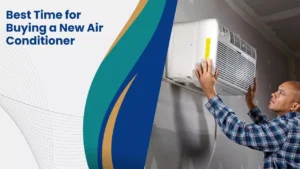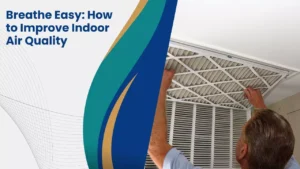The air in your home is excessively dry if you see static in your hair or sparks flying when you touch someone or something in the winter. Your respiratory system isn’t happy when the air is dry. You can suffer even if you don’t have any health issues at all, according to her. Your lungs become dry, as well as your skin and nasal passages. It is conceivable to have oral dryness and coughing upon awakening.
The Environmental Protection Agency recommends 30–50% humidity for residential buildings. When possible, A Humidifiers should utilise filtered water to eliminate salts and germs.
Humidifier
A humidifier uses steam or water vapour to improve atmospheric humidity. Ask if this is an air purifier. No, air purifiers filter air, whereas humidifiers provide moisture. While a humidifier does not purify or filter air, it may enhance air quality.
When To Use A Humidifier?
Dry air can worsen preexisting conditions and cause damage to the nose and lungs. Additionally, suboptimal humidity levels might be hazardous for all individuals.
Using a humidifier can relieve:
- Chronic runny nose.
- Hay fever symptoms.
- Nose bleeds.
- Asthma and allergy flare-ups.
- Congested sinuses
- Dry throat.
Some of them are explained below to show how humidifiers help:
Chronic Runny Nose
Chronic runny noses and congestion can be treated using humidifiers. Air moisture prevents nasal passages from drying up, reducing irritation and suffering. Preventing passage dryness is key.
When nasal passages dry, the body produces too much mucus, which is the main cause of a runny nose. Humidifiers help keep the nose moist and reduce mucus production by providing variable humidity levels.
This makes chronic runny noses milder and less frequent. Achieving nasal passage ease is crucial. To ease congestion and make breathing easier, use a humidifier to keep the nasal passages wet.
Also check: Humidifier Maintenance Checklist
Sinus Congestion
Congestion from a cold or other disease is rare but not chronic. If you experience nasal congestion throughout the day, trouble breathing during sleep, or nasal congestion upon waking, a humidifier may be of assistance.
Dry air from outdoors or heating may create nasal congestion. If your illness is worsening or if you have any additional symptoms, it is important to discuss the use of a humidifier with your doctor.
Conditions like asthma might become much more severe in dry air. Consult your doctor before using a humidifier to verify safety.
Nose Bleeds
More frequent nosebleeds may be caused by dry air. Removing extra moisture from the air using a humidifier may help nasal dryness. If a humidifier doesn’t work, see a doctor to rule out other nosebleed reasons.
Allergic and inflammatory reactions decrease. A specialist said: “Using a good humidifier to control humidity will improve your home. It improves breathing and reduces allergy and cold symptoms.” Additionally, research shows that flu and other viruses spread less in humid surroundings (40–60% humidity) than in drier ones.
Dry Throat
Chronic dry mouth, often caused by low humidity, can be treated with humidifiers. These gadgets keep the air wet so the throat doesn’t dry out. These devices keep the air wet, reducing throat dryness. Dry air can induce throat irritation, soreness, and scratchiness, causing pain and other issues.
Maintaining air moisture using humidifiers helps with these difficulties. Moisture soothes throat tissues, reducing dryness and pain. Humidifiers reduce throat irritation and dry air-related coughing, hoarseness, and other throat difficulties. They do this by boosting atmospheric humidity.
Types Of Humidifiers
Following are some types of humidifiers:
Central Humidifier
the relative humidity of an entire room in conjunction with your home’s heating and cooling system is controlled by central humidifiers.
Evaporators
By forcing moisture through this sort of humidifier via a wet filter. In order to remove the moisture that is present in a given space, fans are utilised.
Impeller Humidifier
With this option, a cold mist is produced and propelled into space by rapidly rotating discs.
Steam Vaporiser
With this electric-powered option, water is heated, cooled, and then forced into the room as water vapour. You can transport vaporisers from one room to another.
Ultrasonic Humidifier
Operating similarly to an impeller humidifier, this one distributes a refreshing mist around the area via ultrasonic vibration.
Maximising The Performance Of Humidifier
You must monitor your humidifier to ensure that it is both clean and functioning correctly. Consider the following three straightforward steps:
Refresh The Water
Every day, room humidifiers require one gallon of water, which needs to be changed to prevent the growth of bacteria or mould that might occur from standing water. Every two to three days, wash any buckets or filtration systems as well.
Change The Filter
Replace the filter once a month or more regularly, as recommended by the manufacturer, if your humidifier is centrally positioned.
Check The Humidity Level.
To avoid respiratory problems, check your home’s relative humidity often. Prolonged humidity exposure can cause respiratory issues. Warm, moist environments foster diseases, mould, mildew, and dust mites. These microorganisms may aggravate asthma and allergic reactions.
Conclusion
Knowing the unique health issues and environmental factors at hand is essential before making a humidifier decision. Consistently dry air in your house may cause dry skin, itchy nasal passages, a chronic runny nose, or a parched throat. A humidifier could potentially provide substantial relief from these symptoms.
In cold or low-humidity settings, humidifiers manage air moisture. This exacerbates respiratory infections and allergies while boosting health. Observing relative humidity levels and noticing dryness or discomfort can help determine if a humidifier installation would improve home health and comfort.





